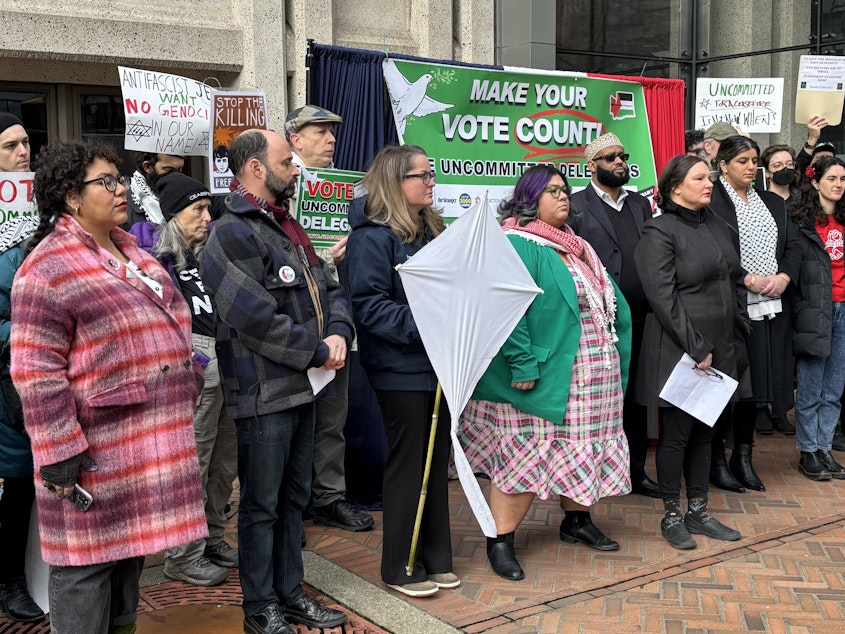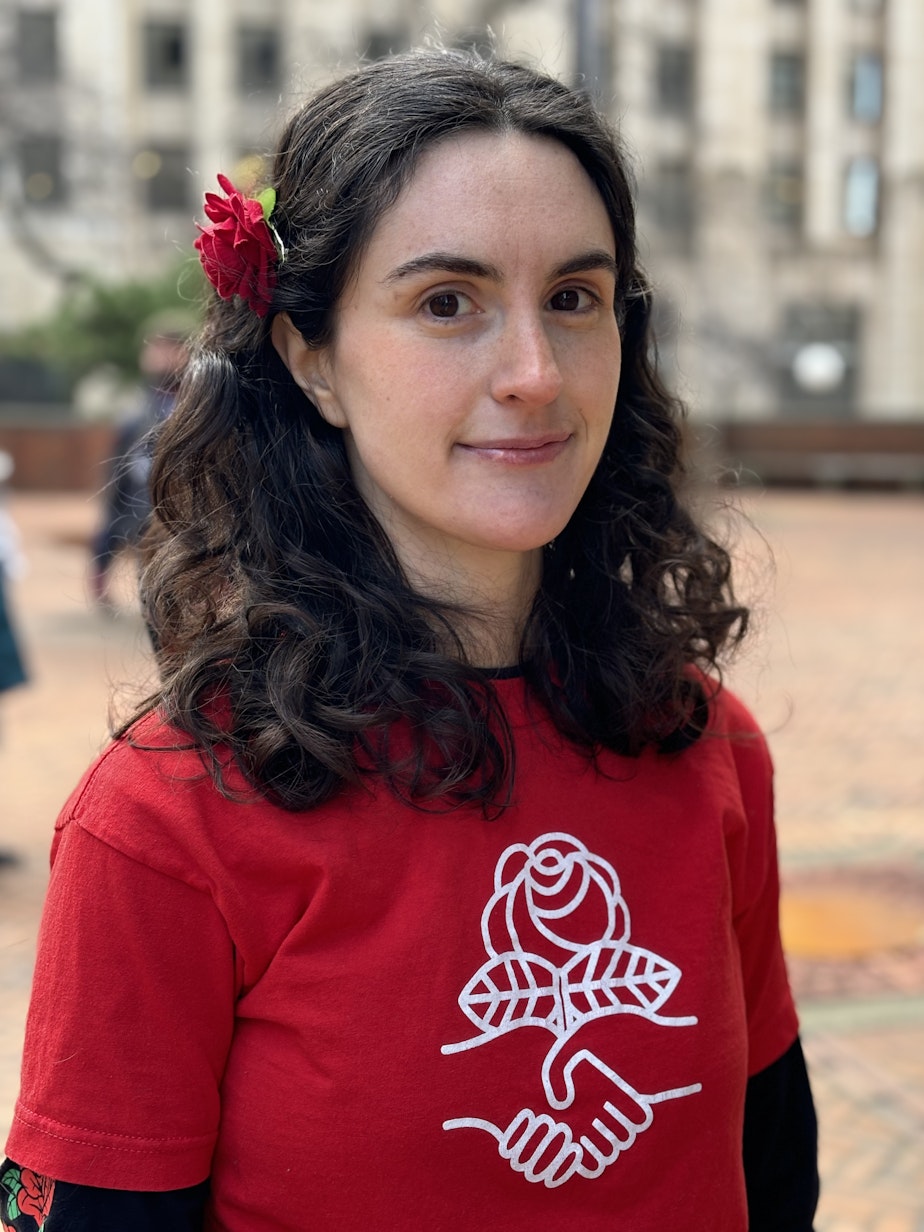Vote 'uncommitted' in presidential primary, say coalition members for Gaza ceasefire

Rebekah Harris Liebermann is the granddaughter of Holocaust refugees and one of potentially thousands of Washingtonians who plan to vote “uncommitted” in the state’s Democratic presidential primary next week.
“My grandfather died just about a year ago, and it would break his heart to see what is being done in his name and in our names,” Liebermann told KUOW. “It is imperative that we do absolutely everything that we can to not only stop the genocide that's happening.”

Liebermann was part of a coalition calling for Democratic voters in Washington to cast “uncommitted” ballots rather than voting for President Joe Biden in the presidential primary election on March 12. The group stood in the cold Monday in front of the Henry M. Jackson Federal Building in downtown Seattle to call on Democrats to use the ballot box to send the Biden administration a message: If Biden does not support a permanent ceasefire, they cannot support him.
Broadly speaking, those who said they would vote “uncommitted” viewed a vote for Biden as a vote for the status quo, under which the U.S. aids Israel and does not call for a permanent ceasefire in Gaza.
Sponsored
More than 30,000 people have been killed in Gaza since the war began, with thousands more unaccounted for. Israel began its offensive after Hamas militants killed 1,200 Israelis and took 240 others hostage on Oct. 7, 2023.
The movement for Democrats to vote uncommitted started in Michigan, where more than 100,000 voters endorsed that option. Biden won the Democratic primary in Michigan nonetheless; NPR reported Biden picked up more than 80% of the Democratic vote, with nearly 618,000 votes.
Vice President Kamala Harris did call for an immediate, temporary ceasefire on Sunday. NPR reported her remarks were some of the strongest yet made by a senior U.S. official. However, supporters of the “uncommitted” movement want the Biden administration to call for a permanent ceasefire.
The uncommitted movement is now picking up steam in Washington state, where presidential primary ballots must be postmarked by March 12, or turned in to ballot boxes by 8 p.m.
Sponsored
After the votes are tallied, 92 delegates from Washington will go to the Democratic National Convention. Any candidate who receives at least 15% of the vote will receive a proportional number of delegates. That includes Biden, his rivals on the Washington primary ballot, and the “uncommitted” option.
According to the Washington Secretary of State’s Office, a vote for “uncommitted delegates” allows those delegates to decide on a candidate during their national convention.
“That being said, the Uncommitted Delegates push is much less about the delegates themselves and more about the very clear desire by a majority of Democrats for a permanent ceasefire,” one of the coalition's organizers Kelsey Hamlin said in a statement to KUOW. “This will not only lead to Biden being stronger as a candidate in the General but also, and most importantly, to saving lives. It's up to Biden whether he decides to pick up these votes by using his actions, not just his words.”
Republican primary ballots will not include the “uncommitted” option, as the Republican Party did not request it, according to the Secretary of State’s Office.
For Liebermann, this movement is about more than the presidential primary, though.
Sponsored
“The two-party system isn't working for us,” they said. “What is happening in Gaza is unconscionable. But really, we have faced devastation after devastation at the hands of both the Democrats and the Republicans. People are desperate, and they are getting clearer and clearer that it's time for something new.”
Editor's note: KUOW's Chief Digital Officer Rami Al-Kabra is also the elected deputy mayor of Bothell and spoke at the press conference mentioned in this story. His work at KUOW is not related to his work as an elected official and he has no involvement in KUOW's journalism.



